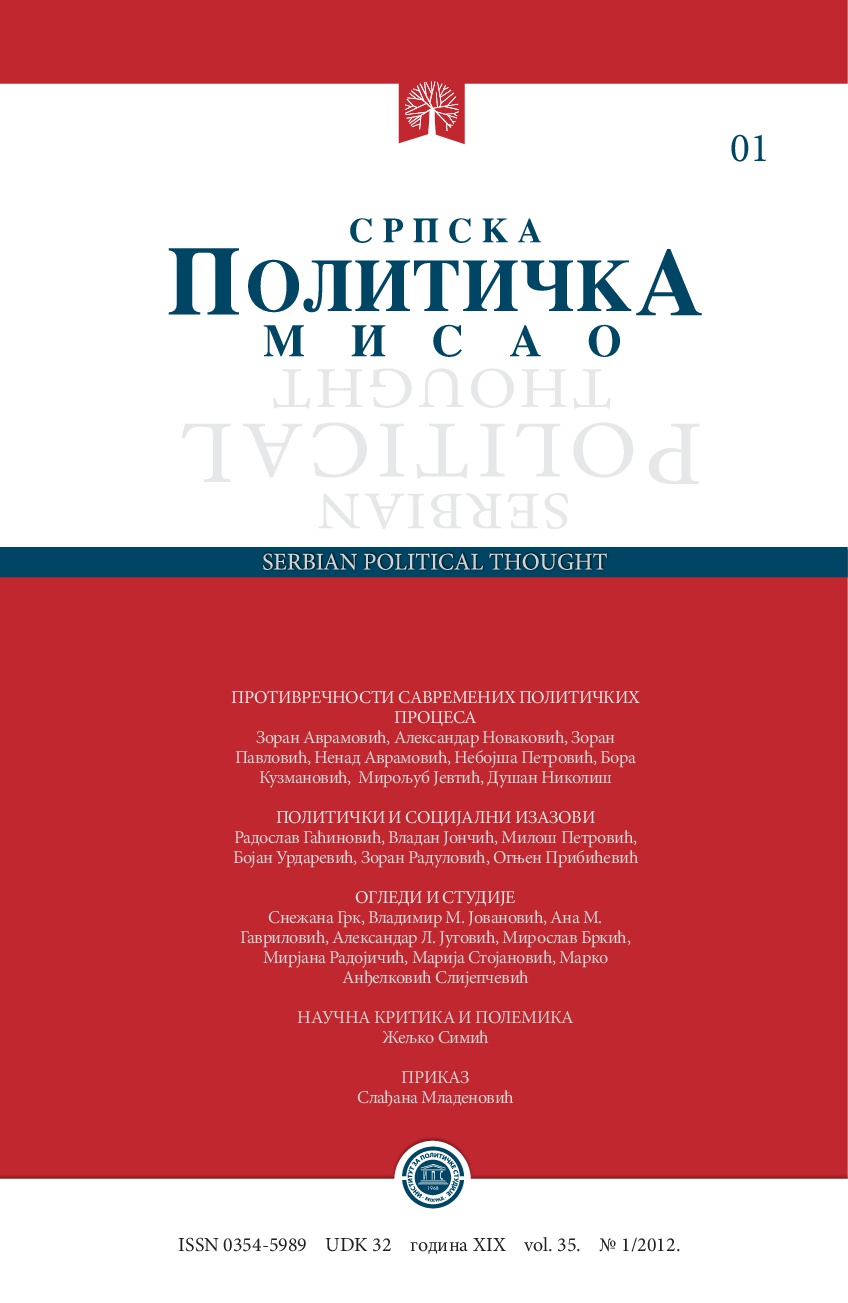A Comparative Study of Child Welfare in Serbia, Croatia and Bosnia-Herzegovina
A Comparative Study of Child Welfare in Serbia, Croatia and Bosnia-Herzegovina
Author(s): Ana M. Gavrilović, Aleksandar L. JugovićSubject(s): Recent History (1900 till today), Welfare systems, Comparative politics
Published by: Институт за политичке студије
Keywords: social policy; child welfare; family; child maintenance; maternity leave;
Summary/Abstract: The aim of this paper is to analyze, through comparative perspective, current systems of child welfare in transitional societies of the Southeast Europe: Croatia, Serbia and Bosnia-Herzegovina. In this paper we used historical, comparative and statistic method. Socio- political characteristics of these states are: mutual history of child welfare systems, transitional metamorphosis of society and social policy, European perspectives and the need for upgraded child welfare. Gavrilovics point out the common past of child welfare systems of these states. In the main part of this work comparative methods are used to analyze current characteristics of child welfare in Serbia, Croatia and Bosnia- Herzegovina. Family and child support measures are taken into account, with special emphasis on child maintenance, maternity and parental leave and services of specialized children’s institutions. Child welfare is analyzed in the context of transitional changes that the South- east European states are undergoing. Analysis of the three basic forms of financial support of families with children showed that transitional changes substantially reduced the number of children benefiting from child maintenance and even more reduced its amount. Maternity leave is recognized as an important measure in family and population policy in all three states, but there are lack of means, compensation amount is under constant pressure to be lowered.
Journal: Српска политичка мисао
- Issue Year: 2012
- Issue No: 1
- Page Range: 251-272
- Page Count: 22
- Language: English

